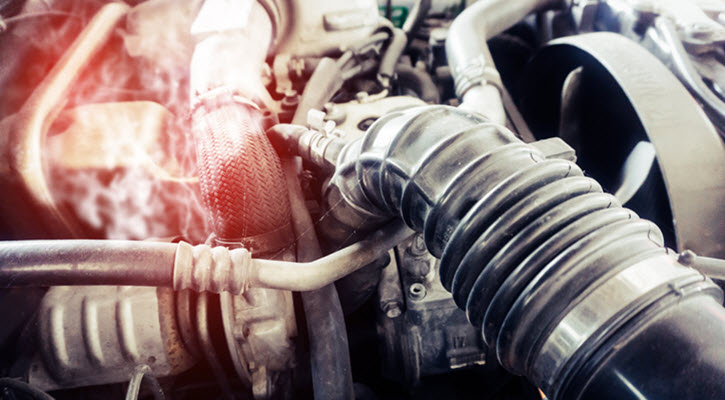
Role of the Audi’s Air Control Valve in Santa Barbara
31 Mar, 19
There’s nothing like spotting a beautiful Audi on the road. Its sleek design and sporty appeal makes it an ideal choice for the modern driver. German cars are known for being powerhouses on the road. That’s what makes them such a joy to drive! They have the power to whip through the streets with ease without causing unnecessary damage to their system. This is all due in part to their extraordinary mechanical design.
One of the contributing factors to the Audi’s performance is a little-known piece called the idle air control valve, or IAC as it’s known in the mechanical world. Located within the engine, this intricate piece plays an integral role in regulating how well your engine operates. Without this piece, your vehicle may experience an increase in performance issues.
If you’re an Audi owner and want to know more about how your car works, you’ve come to the right place. Let’s discuss the role of your idle air control valve, signs of damage, and how you can maintain this important aspect of your vehicle. By paying attention to these details, you’ll notice an overall increase in how your Audi performs.
What Is the Idle Air Control Valve?
The IAC is responsible for managing how much air is being distributed to the engine when your car is in idle. As you know, if your car is in idle for too long, it’s easy for the engine to become overheated. The idle air control valve works to avoid excessive heat while keeping your car running optimally.
When your car is idling, it’s crucial to have cold air blowing directly on the engine. This keeps your car safe and protects the engine from overheating. In addition, this makes the idling experience undeniably smooth. This avoids unnecessary jerks or “hiccups” in your engine when shifting from idle to your selected gear.
A properly working idle air control valve does more than distribute air. In fact, this smart piece knows exactly how much air is required to keep your engine operating smoothly. Too much or too little air could result in idling complications. The IAC works as a mediator between the air and your engine, making sure all air levels are balanced and proper.
The computer, aka the engine control module, found within your vehicle is responsible for controlling the IAC properly. This piece keeps a close eye on how quickly your engine is moving when your car is idling. By working closely with the IAC, the ECM, or engine control module, helps to regulate the amount of air released from the IAC. By keeping a close eye on how much air is being distributed, the ECM helps to regulate air flow and temperature. When everything is properly balanced, the idling experience is smooth and doesn’t damage the engine.
There are 2 different idling settings that work to regulate air flow. Typically, when you first purchase your vehicle, the standard setting is already chosen by the manufacturer. This is known as the “minimum” setting. You can alter it as you get to know your vehicle. However, it’s best to keep it at a lower setting for maximum efficiency.
Signs of a Damaged Air Control Valve
One of the primary signs of a damaged ACV is rough idling. The whole point of this piece is to keep your vehicle running smoothly. Therefore, any signs of jerking or rough idling could be trouble with your AVC. In addition, if you’re experiencing frequent overheating spells, this may be an indication of a deeper problem. Since the ACV is responsible for blowing cool air, overheating shouldn’t occur.
How to Maintain Your Idle Air Control Valve
Like all German-manufactured vehicles, it’s best to keep your Audi inspected and serviced regularly. These cars are meticulously engineered, meaning that most engine issues will require immediate attention. Not to mention, they require specific parts to function properly. Therefore, stay up-to-date with your service appointments. Find a mechanic you trust so as to avoid future damage. A skilled team of mechanics who are knowledgeable of German vehicles should have the ability to detect issues early. This will save you a ton of time and money down the line.
In addition, ask your mechanic about replacing this part when necessary. Every 50-70,000 miles is when many simple parts begin to experience routine wear and tear. By replacing this piece altogether, you’re extending the life of your vehicle.

How We Can Help
The automotive experts of Santa Barbara Autowerks are seasoned experts in the world of German vehicles. Servicing Santa Barbara, CA, they’ll be able to determine the condition of your vehicle and provide the services you need. Bring your car in today and get back to driving!
* Audi Q5 image credit goes to: ABykov.




